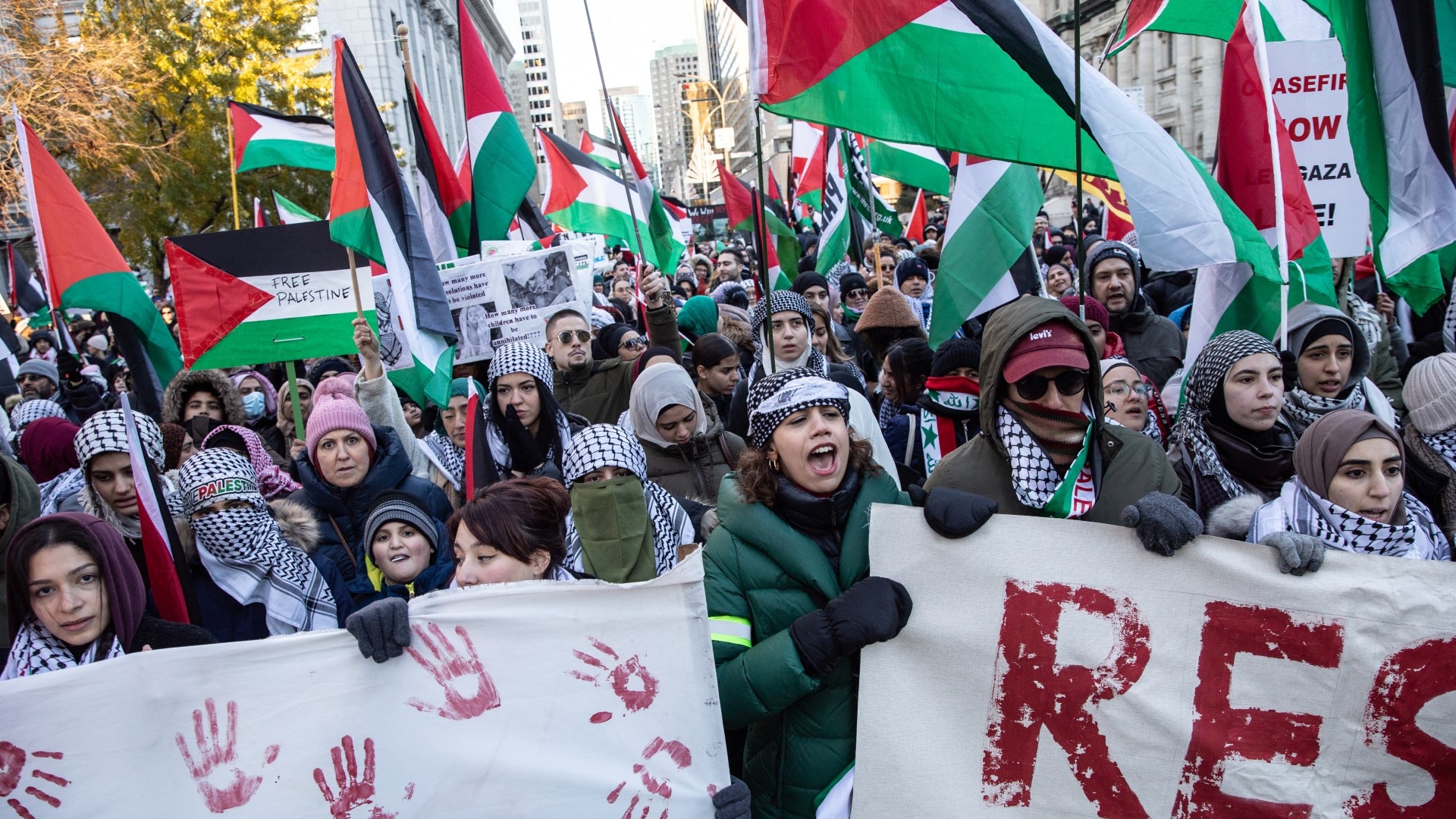Humanitarian groups urge Canada to halt 'all arms to Israel'

Canadian civil society organisations have signed a letter urging the Canadian government to stop all arms transfers to Israel.
Addressed to Canadian Foreign Minister Melanie Joly, and published on Tuesday, the letter warns of Canada's complicity in a "humanitarian catastrophe" in Gaza and calls upon the government to respect its obligations under the UN's Arms Trade Treaty (ATT), which Canada acceded to five years ago.
"As organizations committed to upholding human rights, the protection of civilians, peace, and justice, we urge the Government of Canada to take immediate action to cease all exports of arms and arms components to Israel, as well as any and all transfers for which Israel will be the end user", the letter reads.
In 2023, $22.2m worth of military material was exported to Israel, placing the country among the top 10 recipients of Canadian arms exports.
Of the 19 signatories to the letter, including Amnesty International Canada, Independent Jewish Voices Canada, Care Canada and Doctors of the World Canada, several of the groups have a presence in Gaza.
New MEE newsletter: Jerusalem Dispatch
Sign up to get the latest insights and analysis on Israel-Palestine, alongside Turkey Unpacked and other MEE newsletters
The letter specifies these groups see "the grave consequences of the transfer of weapons to conflict parties" every day.
Under ATT, Canada is prohibited from exporting weapons if they are used to commit serious crimes under international law, including disproportionate and indiscriminate attacks. Canada's arms sales to Israel are incompatible with its obligations under ATT, the group argues.
In March this year, the government of Canadian Prime Minister Justin Trudeau announced it would halt future arms sales to Israel, following a non-binding vote in the House of Commons.
"It is a real thing", Joly commented on the decision. However, previously approved arms transfers do not fall under the Canadian government's decision to stop the transfers.
While the letter concedes that the move was "a step in the right direction", the signatories note that the proposed permits for arms transfers to Israel have not been denied but instead "left in limbo for future authorization, and, most disturbingly, previously approved arms transfers have continued unabated".
The letter specifically mentions an export deal approved on 14 August by the US, which stipulates that the Quebec-based company, General Dynamics Ordnance and Tactical Systems Inc., will be the principal contractor in the likely sale of $61m in high explosive mortar cartridges and related equipment to Israel.
"This announcement directly contradicts the claims made by the Canadian government that the only outstanding military exports to Israel are for “non-lethal” military equipment", the letter reads.
Furthermore, until the end of 2025, transfers of Canadian military goods to Israel have been approved despite the vote in the House of Commons.
The criticism expressed by Canada's civil society organisations echoes similar trends by countries who have continued selling arms to Israel despite pledges and parliamentary votes to cease all exports.
Double standards
Since the start of the war on Gaza, several countries have chosen to review and suspend arms sales to Israel, with the UK being the latest country to undertake such efforts.
On Monday, following a review under the new Labour government which found that British-made weapons may have been used in violation of international humanitarian law in Gaza, the UK suspended 30 arms export licences to Israel with immediate effect.
While Britain accounts for a relatively small portion of all arms sales to Israel, Israeli Prime Minister Benjamin Netanyahu denounced the decision as "shameful" and said the move emboldens Hamas.
Rights groups have expressed criticism, arguing that the UK could have done more. “The suspension of export licences took far long and didn’t go far enough," said Yasmine Ahmed, UK Director of Human Rights Watch.
Italy, the third-largest exporter of weapons to Israel between 2019 and 2023, announced last year that arms exports to Israel were halted following the start of Israel's bombing campaign on Gaza.
In March this year, however, the Italian defence minister said that Italy has continued to export arms to Israel. In 2023, Italy sold arms and munitions to Israel worth $15m, according to figures by Altreconomia and Italy's national statistics bureau Istat. Between October and December 2023 alone, a share of $2.3m was approved.
Similarly, Spain announced in February that no arms sales had been authorised since 7 October, but El Diario reported that military exports authorised before the war had been processed and sent to Israel.
Both Germany and the US, Israel's largest arms suppliers, have continued to export weapons unabated. Three weeks ago, the US approved its latest weapons transfer to Israel, worth $20bn.
Middle East Eye delivers independent and unrivalled coverage and analysis of the Middle East, North Africa and beyond. To learn more about republishing this content and the associated fees, please fill out this form. More about MEE can be found here.




